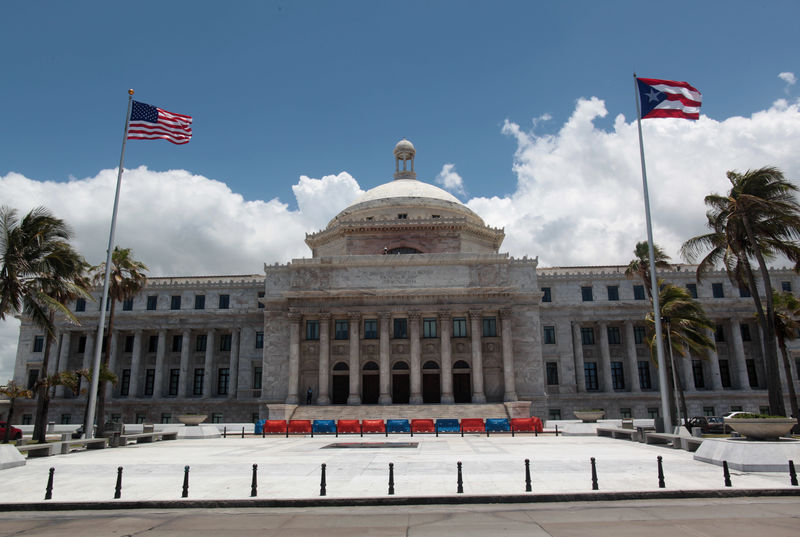WASHINGTON (Reuters) - Puerto Rico would get substantial debt relief and other new aid to help it recover from destruction inflicted by Hurricanes Irma and Maria in September, under legislation unveiled on Tuesday by leading liberals in the U.S. Senate.
Senator Bernie Sanders, an independent, and Senator Elizabeth Warren, a Democrat, called for a new "emergency credit facility" of up to $57.2 billion for Puerto Rico and $5 billion for the Virgin Islands, according to a summary of the bill.
The bill would also extend the deadline for individuals to apply for assistance from the Federal Emergency Management Agency.
The legislation cannot advance without the support of Republicans, who hold a slim majority in the Senate.
Congressional Republicans and the Trump administration have approved some $51 billion in aid to the U.S. territories of Puerto Rico and the Virgin Islands and U.S. states hit by hurricanes and wildfires, with a new round expected to be approved in December.
The effort has been criticized as lackluster by many Democrats in Congress, with large swaths of Puerto Rico still without power and clean water.
Puerto Rican Governor Ricardo Rossello is seeking more than $94 billion in disaster recovery aid, including $31.1 billion for housing and $17.8 billion to rebuild and bolster the power grid.
The legislation would put Congress on record in support of relieving Puerto Rico's $72 billion debt. The island has a further $50 billion in unfunded pension liabilities.
Kenneth Mapp, governor of the U.S. Virgin Islands, said the island had requested $7.5 billion to cover uninsured hurricane-related damages to the public sector.
The hurricanes devastated the island’s healthcare sector, destroying two already struggling hospitals. Mapp also asked for a waiver to use $226 million in unspent Medicaid funding provided under Obamacare. The island was unable to spend the money because the local government could not provide its share of matching funds.
The Sanders-Warren plan would also restore the U.S. minimum wage for certain young workers in Puerto Rico, open some federal food and nutrition programs to the two territories and improve benefits under the Medicare and Medicaid health programs.
The legislation as well would provide more federal aid for rebuilding Puerto Rico's electric grid, with an emphasis on beefing up solar, wind and other "clean" energy capabilities.
